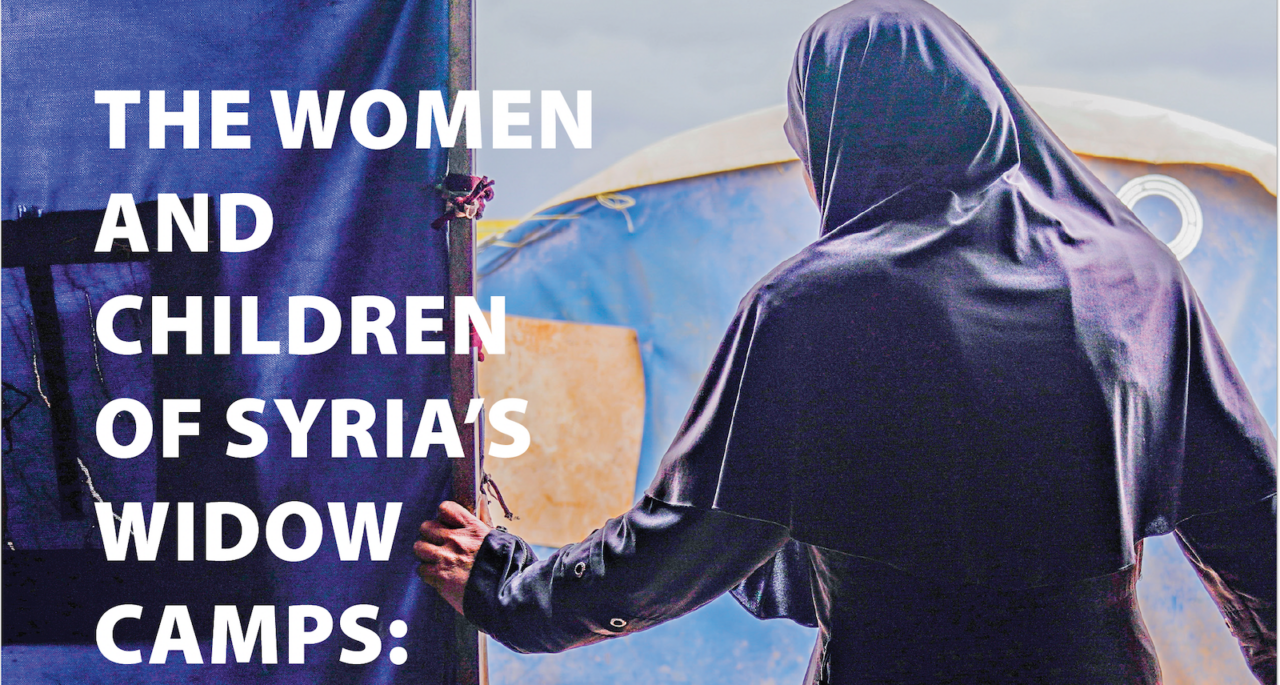As the crisis in Ukraine unfolds and the world’s eyes are on the plight of refugees from there, a hidden crisis is emerging out of a war that has devastated a nation for more than a decade. A new report by international aid agency, World Vision investigates what life is like for tens of thousands of women and children who struggle to survive in the so-called “widow camps” across Northwest Syria. Children are in desperate need of safety and protection, as their mothers have little or no means to take care of them and are suffering trauma and abuse themselves.
The report entitled, Syria’s Widow Camps: Hardest to Reach, Most at Risk, investigates what life is like in “widow camps” where widows and other women whose husbands are missing or who have gone through divorce, live with their children. Eleven years into the war, the ongoing humanitarian crisis unfolding behind the shielded camp gates is worse than ever before. The overwhelming majority of women surveyed (95%) report having negative feelings or being hopeless with almost no access to mental health support.
Shockingly, 88% of women report a lack of essential services, including healthcare, proper shelter, and protection. Children too, many of whom experience abuse and neglect, confirm this worrying lack of lifesaving support as aid agencies are denied access in these camps. Boys over the age of 11 are forced to leave the camps, and fend for themselves outside. As a result, they are often recruited into terrorist groups because this is their only option for survival.
“Every single year we witness the same – children are paying the highest price of this war,” says Eleanor Monbiot, World Vision’s Regional Director for Middle East and Eastern Europe. “Our research shows that children are bearing the brunt of their mothers’ economic deprivations and living conditions. Traumatised, distressed, and isolated, women are unable to care for and protect their children. Children are being left behind, neglected, and almost half of those we spoke with, have lost hope and have no aspirations for their future. Mothers are expressing being at their ‘breaking point’ with alarming mental health needs and no income to care for their families, driving them to adopt harmful survival strategies for themselves and their children.”
While most displacement camps offer some form of humanitarian assistance and are explicitly included in humanitarian operations, widow camps’ residents have limited access to humanitarian aid. The camps are spread across Northwest Syria where it remains extremely challenging to respond to increasing needs as there is currently only one point of access for humanitarian assistance remaining. To date, no international humanitarian organisation has been granted access to the widow camps and only a few agencies that specialise in protection or mental health, including some World Vision partners, have had access to a selected number of sites.
Widow camps remain completely and unjustifiably invisible in the humanitarian response to the conflict. World Vision is calling on the UN and donor governments to use their diplomatic leverage to advocate for humanitarian workers’ access to widow camps across NW Syria as they remain completely and unjustifiably invisible in the humanitarian response to the conflict to date.
“As the world rightly reaches out to support refugees fleeing Ukraine, we urge those who have the political power to prioritise these Syrian children’s lives too. They have experienced war and displacement for eleven years now, and they too deserve safety and protection”, adds Eleanor.
